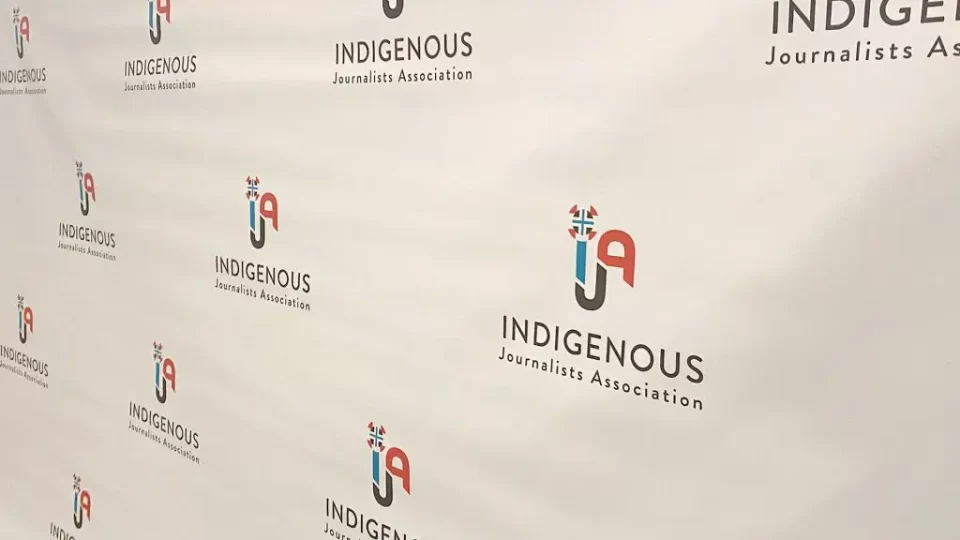NAJA Votes Name Change to ‘Indigenous’:
Rationale Includes Connection to Natives Worldwide
Some Returning From Conventions With COVID
Gilbert Bailon Lands as Editor at WBEZ Chicago
Robbie Robertson Was Also an Indigenous Musician
Goldberg Pledges Diversity on ‘Washington Week’
A Revelation About Mental State of Child Shooter
ProPublica Reveals Even More About Thomas
People of Color Lacking Among Late-Night Writers
Hampton J-School Regains Full Accreditation
Short Takes: Gracie Lawson-Borders; Kat Stafford; Laura Jarrett; racism vs. remote work; Alexi McCammond; Ryan Williams, Malika Andrews, ‘Big Brother’ and the ‘N’ word; Chronicle of Higher Education’s scholarship winner; Online News Association.
Homepage photo: Rhonda LeValdo, left, a past NAJA president, with her “bestie,” Antonia Gonzales, at the National Native Media Conference (Credit: Twitter)
Support Journal-ismsDonations are tax-deductible.
Graham Lee Brewer of NBC News, now president of the Indigenous Journalists Association, narrated this video on “Reporting on Native American Communities” in 2021. The NBCU Academy, a multiplatform journalism training and development program designed to prepare college-level students for a media career, made a presentation at this year’s conference in Winnipeg, Canada. (Credit: YouTube)
Rationale Includes Connection to Natives Worldwide
“Members of the Native American Journalists Association (NAJA) voted to change the organization’s name and elected the 2023-2024 Board of Directors during the 2023 National Native Media Conference held this week in Winnipeg, Canada,” the organization announced Friday. The conference has 304 registered attendees, associate director Francine Compton told Journal-isms.
 The announcement continued, “ ‘It’s so inspiring to see Indigenous journalists around the world asserting themselves in newsrooms and taking their place as the rightful storytellers of their own narratives. It’s long overdue, and we’re so proud and excited to be a part of that movement,’ said NAJA/IJA President Graham Lee Brewer. ‘Connecting with our brothers and sisters across the globe, from Canada to New Zealand, has made it clear that as Indigenous peoples the struggles we face in this industry are universal.’
The announcement continued, “ ‘It’s so inspiring to see Indigenous journalists around the world asserting themselves in newsrooms and taking their place as the rightful storytellers of their own narratives. It’s long overdue, and we’re so proud and excited to be a part of that movement,’ said NAJA/IJA President Graham Lee Brewer. ‘Connecting with our brothers and sisters across the globe, from Canada to New Zealand, has made it clear that as Indigenous peoples the struggles we face in this industry are universal.’
” ‘The group began in 1983 when several Native American journalists met to form the Native American Press Association. In 1990, the group changed its name to NAJA to expand support for Native voices across all media platforms and ensure accurate and contextual reporting about Native communities.
“ ‘Despite the colonial framework that has warped our histories and shapes the stories told about us today or the challenges of working within structures that weren’t designed for us to thrive, we see Indigenous journalists at every level doing the important work of representing their people. We live in a time when it is possible to connect and create deep, meaningful relationships with Indigenous journalists no matter where they are, and we look forward to helping them find each other to share their knowledge and support,’ Brewer said.
“NAJA/IJA Executive Director Rebecca Landsberry-Baker said the operation has been preparing for the proposed rebrand for the last year, including developing a new website. . . .”
- Oscar Baker III, CBC: Formerly NAJA, Indigenous Journalists Association changes its name at Winnipeg celebrations (CBC) (Aug. 15, updated Aug 16)
- Michael Warren, Associated Press: ‘Native American’ or ‘Indigenous’? Journalism group rethinks name
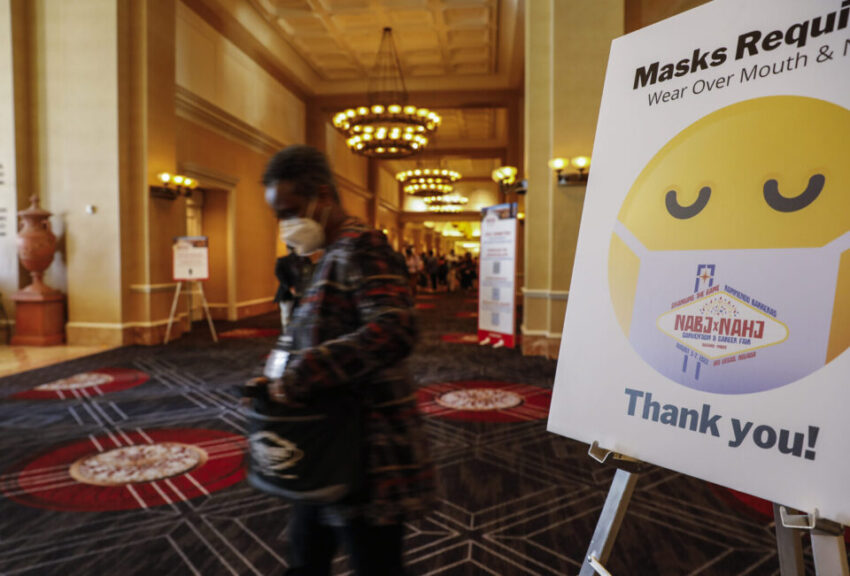
Some Returning From Conventions With COVID
Will Sutton, a columnist for NOLA.com and a past president of the National Association of Black Journalists, wrote columns urging caution during the peak of the COVID pandemic, especially during last year’s joint convention in Las Vegas of the National Association of Black Journalists and National Association of Hispanic Journalists.
Sutton described for Journal-isms what happened at the NABJ convention that ended last weekend in Birmingham, Ala.: “Arrived Wednesday night. Left Sunday morning. Last event was the Chicago kickoff. I had a great NABJ convention experience.”
He tested positive when he returned home.
“This was not what I expected. I’m fully vaccinated and boosted,” Sutton continued. “I got so NABJ happy that I guess I let my guard down too much with the kisses, hugs, handshakes and close proximity with my NABJ family.
“It’s the second time. Happened last year.”
Terace Garnier, a national journalist and Ms. International World United States, tested positive as well. She messaged Journal-isms Friday, “I’ve never had Covid, but I figured it out when I blacked out in my car for 3 hours after landing back in DC Monday. But I also had been up for 24 hours because of all the flight delays so I initially thought it was because of that. But then I started getting crazy headaches, body aches, and a sore throat. I got tested Tuesday morning via a home test and then again at the ER that evening.”
Gayle Pollard-Terry, veteran Los Angeles-based journalist, said that “at least four of us who sat at the same table Saturday for the awards, have tested positive.”
No one appears to be tracking those who caught COVID at this year’s journalism conventions. Few were wearing masks, and, like many elsewhere, thought the danger from the COVID pandemic was over.
The health department in Jefferson County, Ala., which includes Birmingham, site of the NABJ convention, messaged Journal-isms, in part, “We have not had any direct reports related to this event, but Jefferson County is seeing a small increase in reported cases in the county from an average of about 37 positive tests a day the week of 07/24/2023 to about 80 positive tests per day the week of 08/07/2023. For comparison, the last significant wave of COVID-19 in Jefferson County resulted in an average of 210 cases per day in January 2023. We are continuing to monitor for new cases.
“The Jefferson County Department of Health recommends that persons who are increased risk for hospitalization or death from COVID-19 should stay up-to-date on their COVID-19 boosters. . . .
“Persons at increased risk include: persons over the age of 65 years, persons who are pregnant, persons with cancer, chronic kidney disease, chronic lung disease, HIV infection, or weakened immune systems.
“We recommend that persons in vulnerable groups speak with their health care provider about timing of vaccines to provide optimal protection against COVID-19. The United States Food and Drug Administration is preparing to review data for an updated booster meant to provide better protection against circulating strains of COVID-19, and decisions and recommendations for these vaccines are expected in the coming months.”
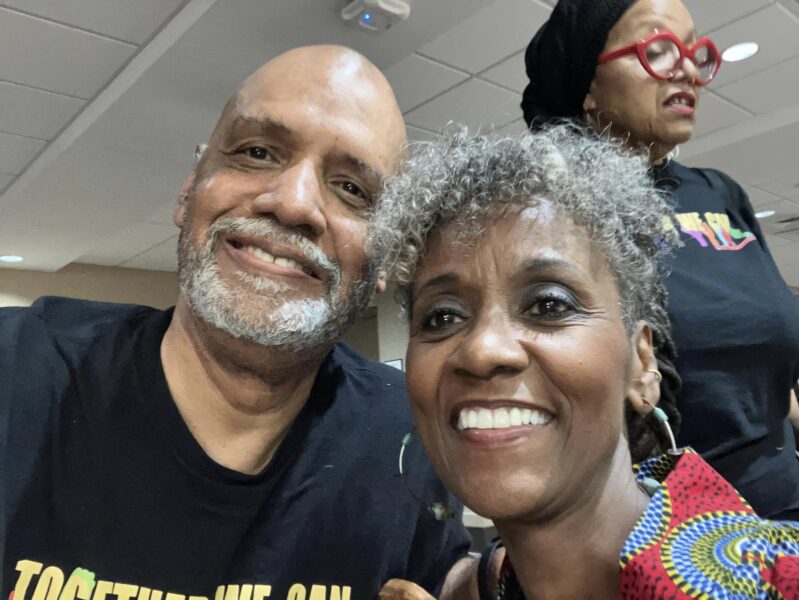
NABJ’s was not the only convention affected. “We had a few people let us know they tested positive after convention, but we are not keeping a running count,” messaged Ai Uchida, deputy director of the Asian American Journalists Association, which met in Washington, D.C., last month.
AAJA sent this message to convention attendees on July 25:
“Dear AAJA23 Participant,
“It was wonderful to have more than 1,500 members and supporters come together at #AAJA23 in Washington, D.C. We look forward to sharing recaps of our time together.
“Registering for #AAJA23 required vaccination and boosters against COVID-19, but any large gathering increases exposure to the illness through close contact with others. We have heard about a handful of people who have tested positive for COVID-19, and we wish them the speediest recovery.
“We urge our participants to stay alert for signs of symptoms and follow CDC [Centers for Disease Control and Peevention] guidelines for taking precautions, including possible self-isolation and testing. The CDC defines close contact as being within 6 feet of someone for more than 15 minutes. If you have tested positive, we encourage you to alert people who may have had close contact with you during the convention.
“Stay well, and have a safe rest of the summer.
“In solidarity,
“AAJA-HQ.”
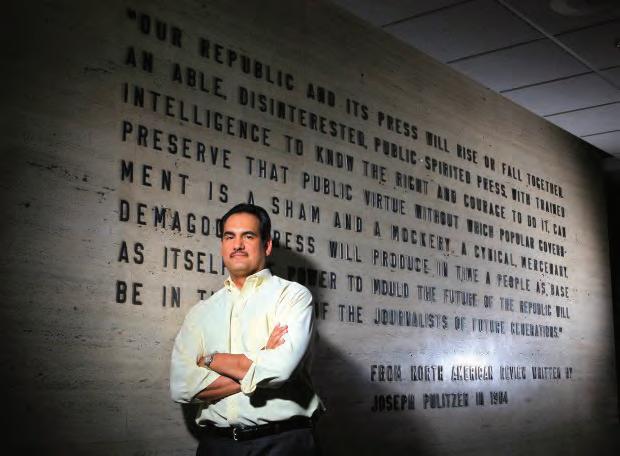
Gilbert Bailon Lands as Editor at WBEZ Chicago
Veteran journalist Gilbert Bailon will join WBEZ in Chicago as the newsroom’s executive editor, the station announced Friday.
“Bailon will oversee the organization’s growing news operation, both online and on air. He will also lead the station’s partnership with the Chicago Sun-Times, which Chicago Public Media acquired in 2022,” the announcement said.
“It’s really a very unusual, if not unique opportunity for a big market to have radio, digital and print all balled into one big operation that can collaborate, share content and reach new audiences,” Bailon said.
Bailon, one of the highest ranking Latino editors in the mainstream media, abruptly resigned in May as executive editor at public media station KERA in Dallas after just 15 months.
Chicago Public Media’s Chief Content Officer Tracy Brown said Bailon’s decades of experience leading newsrooms in places like Dallas and St. Louis make him well positioned to do “transformational work” in Chicago.
Bailon, 64, joined KERA News from the St. Louis Post-Dispatch, where he was its top editor, overseeing the news organization’s coverage of the 2014 police shooting of Michael Brown in nearby Ferguson, Mo., and the social unrest that followed. The Post-Dispatch won the 2015 Pulitzer Prize for breaking news photography. Within the news industry, Bailon was called upon as a speaker to discuss “best practices” after the incident went national and drew scores of reporters to the area.
Bailon had long been a newspaper industry figure, having headed both the old American Society of Newspaper Editors and the National Association of Hispanic Journalists.
In 2007, he became the first ASNE president from a Spanish-speaking newspaper. Bailon was then editor and publisher of Al Día, the Spanish-language daily product of the Dallas Morning News.
In this video from 2010, Robbie Robertson performs two songs (“Ghost Dance,” “Mahk Jchi”) from his “Music for the Native Americans” album live on the BBC. (Credit: YouTube)
Robbie Robertson Was Also an Indigenous Musician
You might not know it from the mainstream media coverage, but songwriter and guitarist Robbie Robertson, who died Wednesday at age 80, identified as Native American.
After narrating the four-part PBS documentary “Native America” in 2018, Robertson said, ““Partly because of my heritage, the subject is something I’m drawn to.” His Mohawk/Cayuga mother grew up on Canada’s Six Nations of the Grand River reserve. She taught him to “be proud you’re an Indian, but be careful who you tell,” he said.
Miles Morrisseau wrote for ICT, formerly Indian Country Today, “His legacy in the foundation of contemporary music is definitive but his contribution to the evolving sound of Indigenous music is less known but just as apparent.”
In the Winnipeg Free Press in Winnipeg, Canada, site of this year’s National Native Media Conference, which began Thursday, Alan Small interviewed admirer David McLeod, who “idolized Robertson, not just from the music he created with the Band in the 1960s and ’70s but also his solo career, during which Robertson often drew upon his roots with the Six Nations of the Grand River.“
” ‘When he started to talk about his Indigenous connections, especially his home community, it was gratifying to know he was acknowledging it,’ McLeod says.
“ ‘He was way ahead of his time. We’re talking pre-Jeremy Dutcher, pre-A Tribe Called Red. He was working with musicians of the time to mix traditional sounds and historic recordings with modern beats.
“ ‘I think he needs to be recognized for that and I don’t believe it is recognized enough.’
“Among the songs on McLeod’s autographed disc, which was released in 1998, is Sacrifice, which includes words spoken by Leonard Peltier, a member of the American Indian Movement who was found guilty of murdering two FBI agents at the Pine Ridge Indian Reservation in South Dakota in 1975.
“Peltier, 78, was sentenced to life in prison but his ongoing legal fight has made him a symbol for Indigenous protest in the United States. Robertson recorded a phone conversation with him and included some of Peltier’s words in the song.
“ ‘That song is not a commercial release, that’s an artistic release and that’s a community release,’ McLeod says. ‘He recognized the importance of Leonard Peltier’s voice, to give thought to what happened to him and that whole era. I was ecstatic when he did that.’ . . .”

Goldberg Pledges Diversity on ‘Washington Week’
When Yamiche Alcindor left the moderator’s chair on PBS’ “Washington Week” in February to devote more time to her day-to-day job as an NBC News correspondent and to work on a memoir, she had hosted the most diverse incarnation of the reporters-roundtable show since it debuted on Feb. 23, 1967.
Subsequent guest-hosted shows were not nearly as diverse by race, gender and age. But Jeffrey Goldberg, the editor in chief of The Atlantic magazine who began hosting the show Friday night as part of a new partnership with The Atlantic, promises inclusion as well.
Goldberg, who is white and male, messaged Journal-isms Friday, “Ensuring a diversity of voices and perspectives is essential for us. This will come through in the panel of journalists who join the show each week, in the reporting they’ve done, and in the stories we discuss. Just as my predecessors have done, and done exceptionally well, we will involve a wide and diverse group of journalists, including from our diverse team here at The Atlantic.”
Friday’s panel of reporters were Peter Baker, chief White House correspondent for The New York Times, who is white; Laura Barrón-López, White House correspondent for “PBS NewsHour,” who is Latina; and Adam Harris, staff writer at The Atlantic, an African American.
Under the new arrangement, The Atlantic is to co-produce the show, renamed “Washington Week with The Atlantic.” The magazine will cover some of the costs and help to sell sponsorships, Benjamin Mullin reported for The New York Times.
Mullin also wrote that Gwen Ifill, “a groundbreaking Black journalist in a field dominated by white men, was synonymous with ‘Washington Week’ for more than a decade. She died from complications of uterine cancer in 2016, days after the presidential election. Mr. Goldberg said the prospect of moderating the same program as Ms. Ifill, a close friend, was a weighty responsibility and a major factor in his decision to join the program. . . .”
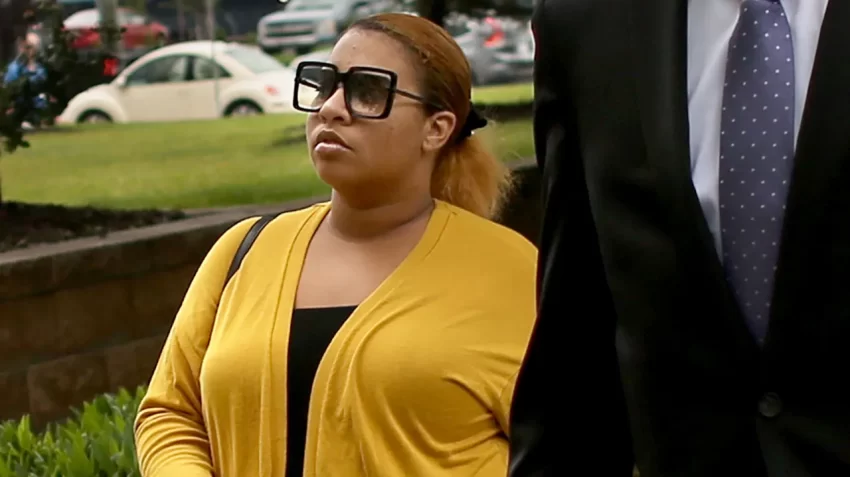
A Revelation About Mental State of Child Shooter
In January, after a 6-year-old was accused of having shot his teachers, this column said, “The race of the 6-year-old accused of shooting his teacher in Newport News, Va., has not been made public, but the issue should have particular resonance in Black communities.
“The rate of firearm-related deaths among Black youth is six times higher than White youth ‘and substantially higher than any other racial and ethnic group,’ the Kaiser Family Foundation reported in October, analyzing national 2021 figures.”
It has since been determined that the child’s mother is Black. And a mainstream newspaper, The Washington Post, revealed this week how disturbed the child appeared to be.
“Amy Kovac was approaching Abigail Zwerner’s first-grade classroom at Virginia’s Richneck Elementary School the moment a 6-year-old student pulled out a gun,” Justin Jouvenal reported Wednesday.
“The reading specialist said in an interview with The Washington Post that she heard the blast from the hallway and thought: ‘Oh my God.’ Suddenly, the door to Zwerner’s classroom burst open and panicked students ran out.
“Zwerner, who had been shot through the hand and in her shoulder and was bleeding badly, followed.
“Kovac, 54, said instinct kicked in. She went into the classroom. She said the boy looked proud.
“ ‘I did it,’ Kovac said the boy told her. ‘I shot the b—- dead.’
“The account is the first time Kovac has spoken publicly about the Jan. 6 tragedy in the Newport News school that generated nationwide attention and outrage after teachers alleged that officials ignored multiple warnings on the day of the shooting that the boy had a gun. The incident ultimately led to the ouster of Newport News’s superintendent and criminal charges for he six-year-old’s mother, and a special grand jury is investigating the actions of administrators and others before and during the incident. . .
“Zwerner later filed a $40 million lawsuit against school officials, and the boy’s mother, Deja Taylor, pleaded guilty to federal charges related to the case. She is expected to plead guilty to a second set of state charges next week. . . . The boy’s mother has said publicly he has attention-deficit/hyperactivity disorder. . . .
“The boy brought the gun to school in his backpack, and it belonged to his mother, authorities have said. . . .”
- Lauren Nutall, Black Enterprise: Black Journalists Gather at 2023 NABJ Convention to Discuss the Importance of Black Press
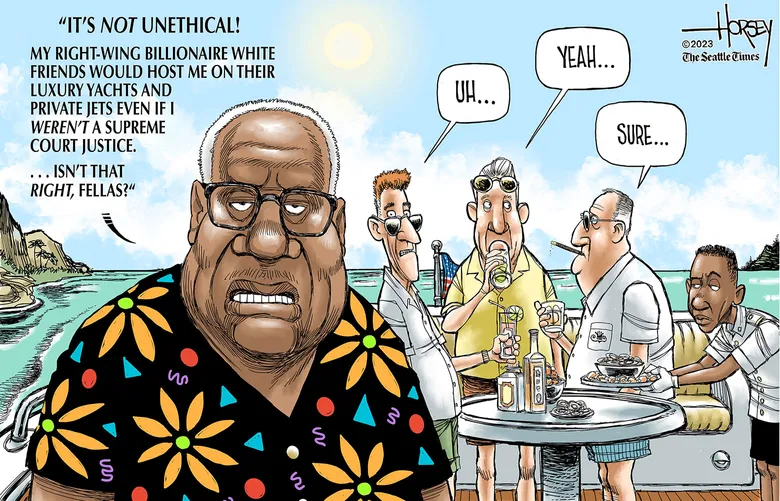
ProPublica Reveals Even More About Thomas
“During his three decades on the Supreme Court, Clarence Thomas has enjoyed steady access to a lifestyle most Americans can only imagine,” Brett Murphy and Alex Mierjeski reported Thursday for ProPublica.
“A cadre of industry titans and ultrawealthy executives have treated him to far-flung vacations aboard their yachts, ushered him into the premium suites at sporting events and sent their private jets to fetch him — including, on more than one occasion, an entire 737. It’s a stream of luxury that is both more extensive and from a wider circle than has been previously understood.
“Like clockwork, Thomas’ leisure activities have been underwritten by benefactors who share the ideology that drives his jurisprudence. Their gifts include:
“At least 38 destination vacations, including a previously unreported voyage on a yacht around the Bahamas; 26 private jet flights, plus an additional eight by helicopter; a dozen VIP passes to professional and college sporting events, typically perched in the skybox; two stays at luxury resorts in Florida and Jamaica; and one standing invitation to an uber-exclusive golf club overlooking the Atlantic coast.
“This accounting of Thomas’ travel, revealed for the first time here from an array of previously unavailable information, is the fullest to date of the generosity that has regularly afforded Thomas a lifestyle far beyond what his income could provide. And it is almost certainly an undercount. . . .”
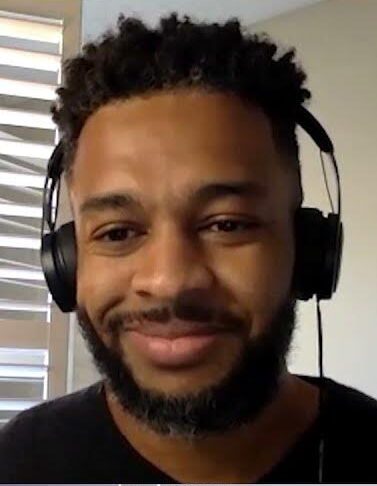 The “PBS NewsHour” Thursday interviewed Joel Anderson (pictured), host of Slate’s “Slow Burn” podcast, whose current season is “Becoming Justice Thomas.”
The “PBS NewsHour” Thursday interviewed Joel Anderson (pictured), host of Slate’s “Slow Burn” podcast, whose current season is “Becoming Justice Thomas.”
Anderson said, “Well, yes, for a man who understandably prides himself on his bootstraps origin story, it’s not surprising that he elides the truth about these wealthy white Republican benefactors and what they have been doing for him for the last 30 years or so. . . .”
People of Color Lacking Among Late-Night Writers
“BIPOC late-night and variety show writers say the lack of diversity on-screen and behind it is due to a lack of chances and opportunity given to people of color,” Raquel ‘Rocky’ Harris reported Thursday for The Wrap.
“ ‘If you look at traditionally… the hosts that we remember a lot, the ones from those 11:30 p.m. 12:30 a.m. shows, they got so many chances,’ Greg Iwinski, who has written for Comedy Central’s ‘Last Week Tonight With John Oliver’ and CBS’ ‘Late Show With Stephen Colbert‘ said Thursday during TheWrap’s strike roundtable, ‘BIPOC Late-Night and Variety Writers Speak Out.’
“ ‘But if you’re a person of color, it’s like, “Here are six episodes, each year that we’re going to call a season. So you have six half-hours,” Iwinski continued. ‘And [executives] are saying, “Well, if [hosts of color] can’t do it in two and half hours a year, I guess we’ll just let your show get canceled after two or three seasons.” ‘
“Historically, late night TV has been a predominately white man’s playground. Vanity Fair’s 2015 photoshoot with the “titans of late-night” made that abundantly clear. Though Larry Wilmore (“The Nightly Show with Larry Wilmore”) and Trevor Noah were the two exceptions out of the lineup of 10 hosts. . . .”
- LZ Granderson, Los Angeles Times: The writers’ strike has brought studios to the bargaining table. The outcome matters for us all (Aug. 4)
- J.J. McCorvey, NBC BLK: Black WGA strikers say they’ve helped streamers boost diversity — and wound up worse off (May 16)
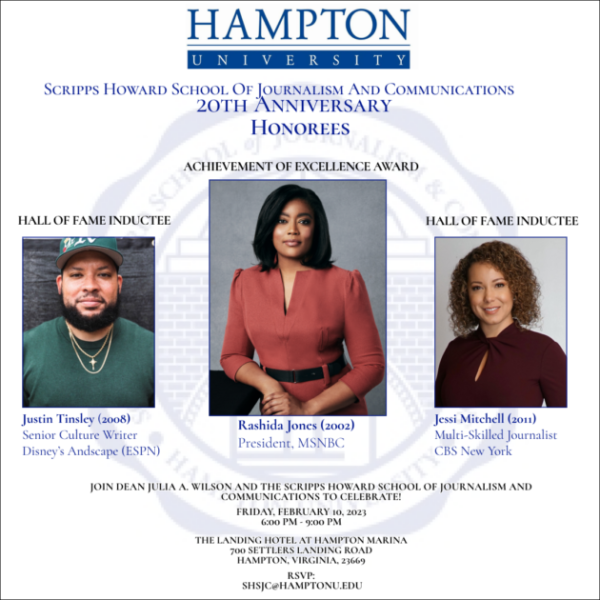
Hampton J-School Regains Full Accreditation
Hampton University’s Scripps Howard School of Journalism & Communications, one of the most prominent journalism schools at a historically Black college or university, has regained accreditation from the Accrediting Council on Education in Journalism and Mass Communications, which granted the school provisional status [PDF] in 2020.
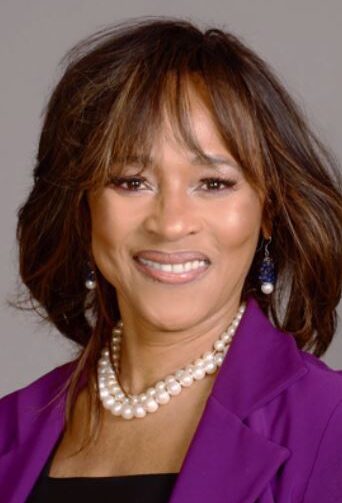 “The School experienced setbacks during the onset of COVID-19 that stymied efforts to address the areas that had been cited as deficient by the 2020 accreditation site team,” the report said. “This makes the progress that has occurred since the arrival of a new dean [Julia Wilson, pictured] in 2021 and a new president [Darrell K. Williams] in July 2022 even more remarkable.
“The School experienced setbacks during the onset of COVID-19 that stymied efforts to address the areas that had been cited as deficient by the 2020 accreditation site team,” the report said. “This makes the progress that has occurred since the arrival of a new dean [Julia Wilson, pictured] in 2021 and a new president [Darrell K. Williams] in July 2022 even more remarkable.
“The new dean’s credentials are impressive, and the impact of her leadership is being felt in several areas, most significantly those related to the three standards that were deemed noncompliant in 2020.
“When she arrived in fall 2021, she immediately took steps to address the issues noted in the site team report. At the same time, she articulated her vision of a new global focus, while committing to enhance the School’s academic foundation and experiential opportunities. She seems to have the enthusiastic support of the new president, whose focus is on ‘providing a supportive environment and academic excellence,’ and it appears that the Scripps Howard School is benefitting in substantive ways. Meaningful investments are being made and, while the hill to be climbed remains steep, the School appears to be making steady and meaningful progress.
“The School’s revisit report asserts that both the dean and the president are focused on ‘graduating students with knowledge, skills and competencies that are in alignment with the ACEJMC 11 professional values and competencies.’ This is backed up by enhancements to curriculum, investments in infrastructure, and a more robust program for academic assessment. . . .”
Wilson told Journal-isms of the April development, “I am thrilled our school has received reaccreditation, which was my highest priority when I came onboard as dean. It also was a top priority of our new president, Darrell K. Williams, who is leading Hampton in delivering the #1 student experience in America.”
She added, “We are moving full steam ahead to realize my global vision of preparing our aspiring journalists and communicators for international careers in which they can showcase the school’s high standards of excellence.
“I’m also very excited that our student enrollment is up for the fall, and we’ve hired new multicultural faculty (from African and Indian descent) to join and diversity our mainly Black American academic team. We’ve also hired a first-class broadcast engineer from Turner Broadcasting.”
Short Takes
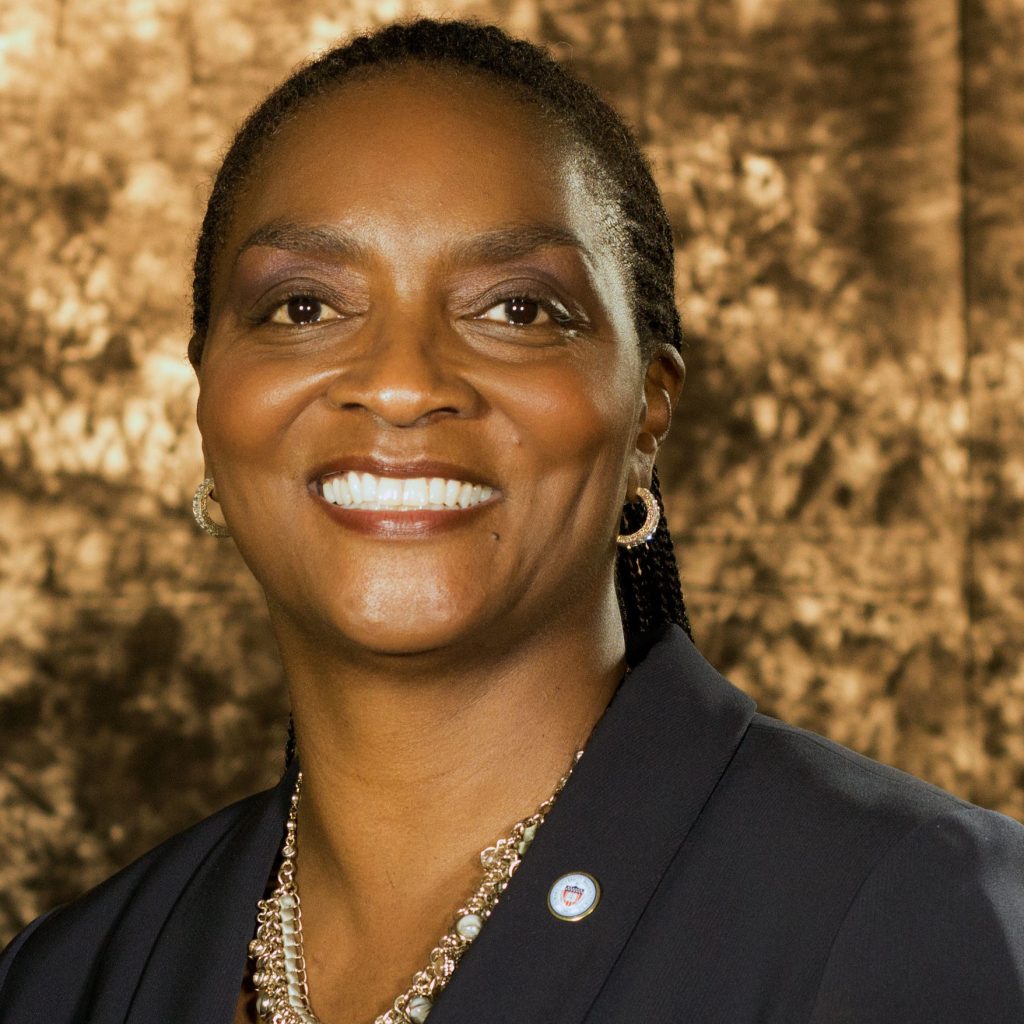 Gracie Lawson-Borders, PhD (pictured), dean of the Cathy Hughes School of Communications (CHSOC), will depart the position at the culmination of the 2023-2024 academic year. The University will promptly launch a national decanal search for the CHSOC,” Howard University President Wayne A. I. Frederick announced Aug. 2. Frederick also said, “Dr. Lawson-Borders has served as the CHSOC dean since 2013. Under her leadership, it has continued to be at the forefront of communications education, receiving full reaccreditation twice through the Accrediting Council on Education in Journalism and Mass Communications (ACEJMC) and the Council on Academic Accreditation. . . . Furthermore, contributions to the CHSOC increased significantly during Dr. Lawson-Borders’ tenure as dean. . . .”
Gracie Lawson-Borders, PhD (pictured), dean of the Cathy Hughes School of Communications (CHSOC), will depart the position at the culmination of the 2023-2024 academic year. The University will promptly launch a national decanal search for the CHSOC,” Howard University President Wayne A. I. Frederick announced Aug. 2. Frederick also said, “Dr. Lawson-Borders has served as the CHSOC dean since 2013. Under her leadership, it has continued to be at the forefront of communications education, receiving full reaccreditation twice through the Accrediting Council on Education in Journalism and Mass Communications (ACEJMC) and the Council on Academic Accreditation. . . . Furthermore, contributions to the CHSOC increased significantly during Dr. Lawson-Borders’ tenure as dean. . . .”
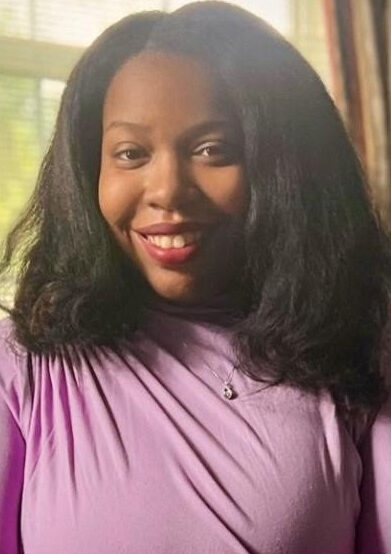 “Award-winning journalist Kat Stafford (pictured) has been appointed as our Global Race & Justice Editor, effective Sept 5,” Mark Bendeich, Reuters global managing editor, politics, economics and world news, announced Wednesday. ” Kat comes to us from the Associated Press, where she is a national investigative race writer and global investigations correspondent. . . .”
“Award-winning journalist Kat Stafford (pictured) has been appointed as our Global Race & Justice Editor, effective Sept 5,” Mark Bendeich, Reuters global managing editor, politics, economics and world news, announced Wednesday. ” Kat comes to us from the Associated Press, where she is a national investigative race writer and global investigations correspondent. . . .”
- Many Black workers and other people of color have “found that remote work lessened the racism they faced on the job,” Samantha Masunaga reported Tuesday for the Los Angeles Times. “But it forces workers to make a difficult choice — prioritize your mental health or endure for the sake of your career. Remote job opportunities are shrinking as more companies require that workers come back to the office. And even in hybrid workplaces, remote employees can be at a disadvantage for career advancement since managers sometimes forget about them or assume they are less productive than their in-person peers, a concept called proximity bias. . . .”
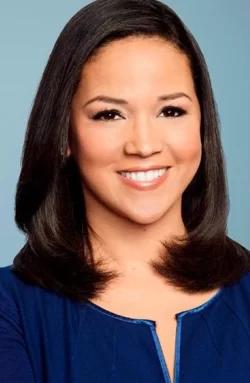 “NBC News’ Laura Jarrett (pictured) will co-anchor Saturday Today, this fall, joining Peter Alexander as the weekend broadcast moves back to Studio 1A in New York after originating from Washington,” Ted Johnson reported Wednesday for Deadline. “Jarrett, who starts on Sept. 9, will succeed Kristen Welker as she steps into her new role as moderator of Meet the Press. She also will continue as NBC News senior legal correspondent and Alexander will continue as the network’s chief White House correspondent. She is the daughter of Valerie Jarrett, Barack Obama confidante and former White House official.
“NBC News’ Laura Jarrett (pictured) will co-anchor Saturday Today, this fall, joining Peter Alexander as the weekend broadcast moves back to Studio 1A in New York after originating from Washington,” Ted Johnson reported Wednesday for Deadline. “Jarrett, who starts on Sept. 9, will succeed Kristen Welker as she steps into her new role as moderator of Meet the Press. She also will continue as NBC News senior legal correspondent and Alexander will continue as the network’s chief White House correspondent. She is the daughter of Valerie Jarrett, Barack Obama confidante and former White House official.
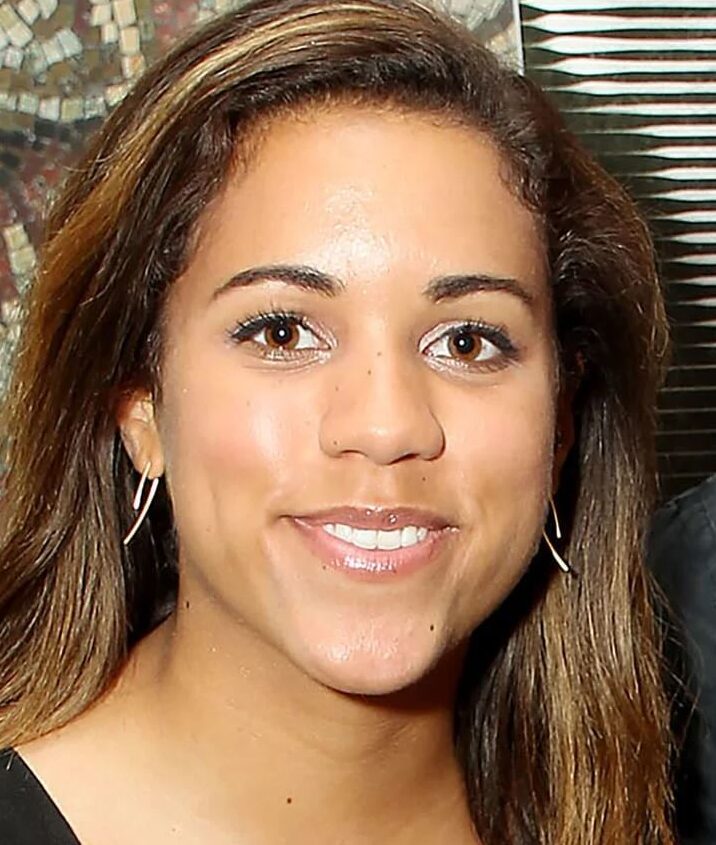 Alexi McCammond (pictured) has joined The Washington Post as an associate editor with the Post Opinions team, the Post confirmed on Friday. McCammond tweeted, “I’m at the @washingtonpost now after 6 amazing years at @axios with the sharpest minds in media. I’ll still be covering politics—but this time with the stellar @PostOpinions team. So send me your op-ed ideas that you want to read! Or write! Alexi.McCammond@washpost.com McCammond returned to Axios in 2021 after an ill-fated appointment as editor in chief of Teen Vogue.
Alexi McCammond (pictured) has joined The Washington Post as an associate editor with the Post Opinions team, the Post confirmed on Friday. McCammond tweeted, “I’m at the @washingtonpost now after 6 amazing years at @axios with the sharpest minds in media. I’ll still be covering politics—but this time with the stellar @PostOpinions team. So send me your op-ed ideas that you want to read! Or write! Alexi.McCammond@washpost.com McCammond returned to Axios in 2021 after an ill-fated appointment as editor in chief of Teen Vogue.
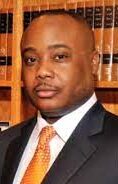 Ryan Williams (pictured), a board member of the Washington Association of Black Journalists and digital/special events producer at the D.C Public Library, is the recipient of the 2023 NLGJA: The Association of LGBTQ+ Journalists Leadership Award, NLGJA announced. The award “recognizes individuals who have made a positive impact on their newsrooms by increasing diversity and improving news coverage of the LGBTQ+ community.”
Ryan Williams (pictured), a board member of the Washington Association of Black Journalists and digital/special events producer at the D.C Public Library, is the recipient of the 2023 NLGJA: The Association of LGBTQ+ Journalists Leadership Award, NLGJA announced. The award “recognizes individuals who have made a positive impact on their newsrooms by increasing diversity and improving news coverage of the LGBTQ+ community.”
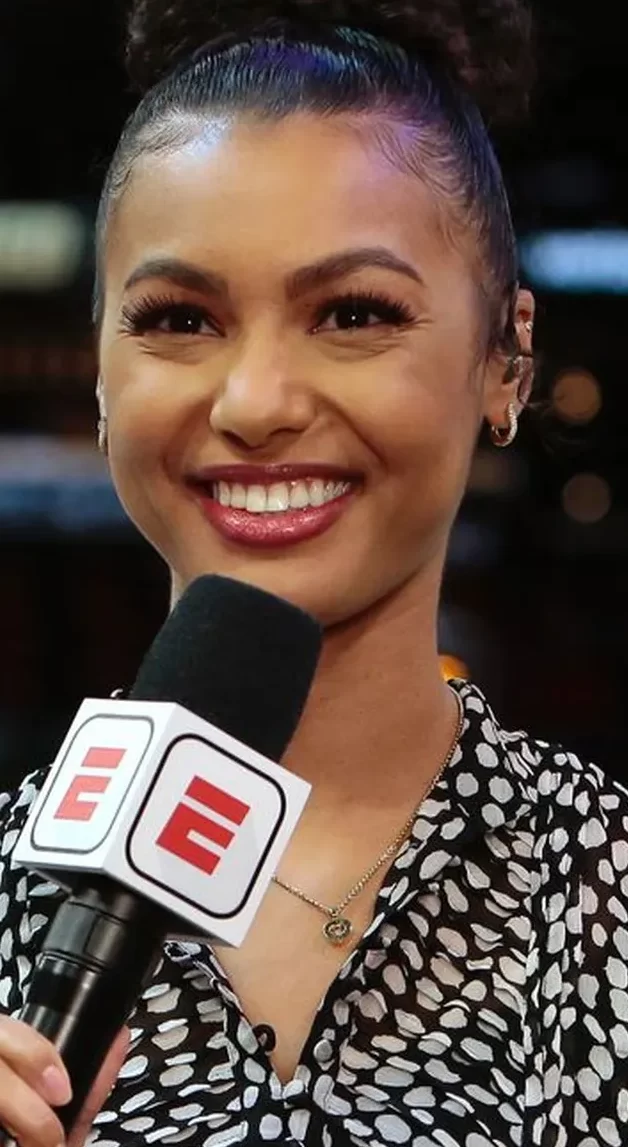 “Malika Andrews’ (pictured) skyrocketing career continues, as she is becoming the new host of the NBA Finals for ESPN, The Post has learned,” Andrew Marchand reported Wednesday for the New York Post. “Andrews, 28, will succeed Mike Greenberg, who hosted the marquee show for the past two years. . . . Andrews will continue as the host of ‘NBA Today’ as her impressive rise to power at the network moves to a new stage. During the NBA bubble in 2020, she emerged as ESPN’s on-site reporter in Florida. . . .”
“Malika Andrews’ (pictured) skyrocketing career continues, as she is becoming the new host of the NBA Finals for ESPN, The Post has learned,” Andrew Marchand reported Wednesday for the New York Post. “Andrews, 28, will succeed Mike Greenberg, who hosted the marquee show for the past two years. . . . Andrews will continue as the host of ‘NBA Today’ as her impressive rise to power at the network moves to a new stage. During the NBA bubble in 2020, she emerged as ESPN’s on-site reporter in Florida. . . .”
- “The latest episode of ‘Big Brother’ has addressed the removal of contestant Luke Valentine following his use of the N-word during a Paramount+ live feed,” Jaden Thompson reported Friday for Variety. “This controversy unfolded just one week into the start of Season 25. Valentine used the racial slur during a casual conversation with other contestants Jared Fields, Cory Wurtenberger and Hisam Goueli. After dropping the slur at the end of a sentence, he seemed immediately aware of his on-camera faux pas. He covered his mouth, laughed and quickly said ‘dude’ instead, while his fellow contestants stared at him. The moment can be watched here.”
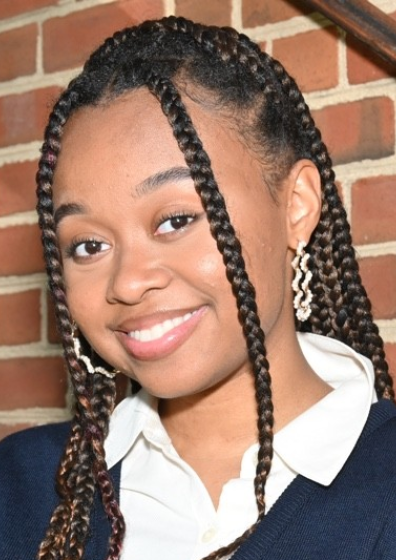 Jasper Smith (pictured), a senior journalism student at Howard University who is editor in chief of The Hilltop, the student newspaper, has been chosen for the Chronicle of Higher Education’s Scholarship for Diversity in Media, the Chronicle reported. “Thanks to The Chronicle of Higher Education, I will be graduating from Howard University debt-free this spring!,” Smith wrote. The Chronicle’s scholarship is $10,000. Smith is also a digital-media intern at The Arizona Republic and an HBCU Student Journalism Network Fellow.
Jasper Smith (pictured), a senior journalism student at Howard University who is editor in chief of The Hilltop, the student newspaper, has been chosen for the Chronicle of Higher Education’s Scholarship for Diversity in Media, the Chronicle reported. “Thanks to The Chronicle of Higher Education, I will be graduating from Howard University debt-free this spring!,” Smith wrote. The Chronicle’s scholarship is $10,000. Smith is also a digital-media intern at The Arizona Republic and an HBCU Student Journalism Network Fellow.
- The Online News Association community will honor award recipients Siri Carpenter, Finbarr O’Reilly, Jean Friedman-Rudovsky, Cassie Haynes and the late Mandy Jenkins at the 2023 Online Journalism Awards Ceremony and Banquet, hosted by NPR’s Gene Demby, on Aug. 26, 7 p.m., in Philadelphia, the organization said Friday. “This celebration is the closing event of the ONA23: Philadelphia conference; a livestream will be available for people who can’t attend in person. Learn more about where to watch the 2023 OJAs.”
To subscribe at no cost, please send an email to journal-isms+subscribe@groups.io and say who you are.
Facebook users: “Like” “Richard Prince’s Journal-isms” on Facebook.
Follow Richard Prince on Twitter @princeeditor
Richard Prince’s Journal-isms originates from Washington. It began in print before most of us knew what the internet was, and it would like to be referred to as a “column.” Any views expressed in the column are those of the person or organization quoted and not those of any other entity. Send tips, comments and concerns to Richard Prince at journal-isms+owner@
View previous columns (after Feb. 13, 2016).
View previous columns (before Feb. 13, 2016)
- Diversity’s Greatest Hits, 2018 (Jan. 4, 2019)
- Book Notes: Is Taking a Knee Really All That? (Dec. 20, 2018)
- Book Notes: Challenging ’45’ and Proudly Telling the Story (Dec. 18, 2018)
- Book Notes: Get Down With the Legends! (Dec. 11, 2018)
- Journalist Richard Prince w/Joe Madison (Sirius XM, April 18, 2018) (podcast)
- Richard Prince (journalist) (Wikipedia entry)
- February 2018 Podcast: Richard “Dick” Prince on the need for newsroom diversity (Gabriel Greschler, Student Press Law Center, Feb. 26, 2018)
- Diversity’s Greatest Hits, 2017 — Where Will They Take Us in the Year Ahead?
- Book Notes: Best Sellers, Uncovered Treasures, Overlooked History (Dec. 19, 2017)
- An advocate for diversity in the media is still pressing for representation, (Courtland Milloy, Washington Post, Nov. 28, 2017)
- Morgan Global Journalism Review: Journal-isms Journeys On (Aug. 31, 2017)
- Diversity’s Greatest Hits, 2016
- Book Notes: 16 Writers Dish About ‘Chelle,’ the First Lady
- Book Notes: From Coretta to Barack, and in Search of the Godfather
- Journal-isms’ Richard Prince Wants Your Ideas (FishbowlDC, Feb. 26, 2016)
- “JOURNAL-ISMS” IS LATEST TO BEAR BRUNT OF INDUSTRY’S ECONOMIC WOES (Feb. 19, 2016)
- Richard Prince with Charlayne Hunter-Gault, “PBS NewsHour,” “What stagnant diversity means for America’s newsrooms” (Dec. 15, 2015)
- Book Notes: Journalists Follow Their Passions
- Book Notes: Journalists Who Rocked Their World
- Book Notes: Hands Up! Read This!
- Book Notes: New Cosby Bio Looks Like a Best-Seller
- Journo-diversity advocate turns attention to Ezra Klein project (Erik Wemple, Washington Post, March 5, 2014)
Page counter rolled back from 443 at 6:17 a.m. Aug. 12 to 259 at 10:03 a.m.

